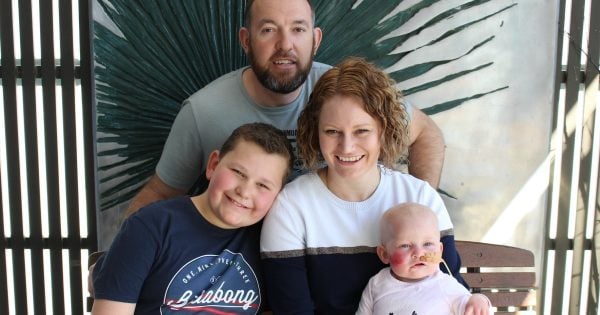
Baby Ava just celebrated her first birthday at the Sydney Children’s Hospital. Described as a “happy baby who loves music”, the 12-month-old should be reaching milestones such as crawling and walking like other children her age.
But she’s not, yet. Diagnosed with infantile acute lymphoblastic leukemia at eight months after suffering from a persistent middle ear infection and trouble feeding, Ava has spent half of her short life in hospital receiving treatment.
Also spending her days in hospital is Ava’s mum, Sherie. Away from her husband, Dave and two sons, Connor, 15 and Blake, 10 who live in their family home in Goulburn, Sherie’s life is confined to the children’s cancer unit where Ava has undergone three rounds of chemotherapy.
For the public servant who had only just returned to work from maternity leave when her daughter became unwell, Ava’s diagnosis has had an understandably massive impact on their family unit.
“It was a huge change, and it’s had a big impact on our lives,” Sherie told Mamamia of life after Ava’s diagnosis.
“We’ve got sons too – we had to think about what this meant for them, as well as the financial pressures and work commitments.
“Generally I spend all of my day in the hospital with Ava, I don’t get out much at all. And during the week when the boys are home, the only time we’ll speak is on FaceTime of a night.”
Fortunately, Ava is one of the lucky ones. Set to recieve a bone marrow transplant from her older brother, Blake in October, Sherie hopes her family will be together again at home by Christmas.

Top Comments
My son also has leukemia, and I have just been diagnosed with lymphoma. The doctors, nurses and support teams have been fantastic are the real heroes of our society. Best wishes to Ava and her family.